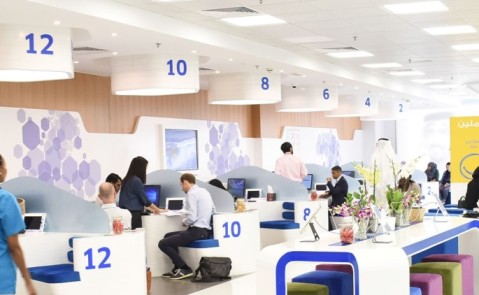
Explore the Evolution of Domestic Work: From Traditional Roles to Modern-Day Maids, Nannies, and Housekeepers in the UAE and Beyond.
Domestic work has been essential to human society for centuries, evolving significantly with the changing social, economic, and cultural landscapes. From historical beginnings to modern-day scenarios, the roles of domestic workers, such as maids, nannies, and housekeepers, have transformed considerably. In this blog, we delve into the past, examine the present, and explore the future of domestic work, particularly highlighting the experiences of maids and nannies in regions like the UAE, where this sector is an integral part of everyday life.
Historically, domestic work was rooted in servitude and often unpaid labour. In many societies, housemaids and housekeepers were a part of large households, managing chores and ensuring the smooth functioning of daily life. This labour was often tied to socio-economic hierarchies, where the wealthy employed domestic workers to cater to their needs, while workers lacked legal and social protections.
In some cultures, the concept of live-in maids or nannies became prevalent. These individuals, often women, played a dual role in managing households while also serving as caregivers. However, their contributions remained undervalued for a long time, overshadowed by societal perceptions of their role as “invisible labour.”
Today, domestic work has gained recognition as a vital industry, especially in cosmopolitan regions like the UAE, where a diverse population relies heavily on domestic workers. The roles of housemaids, nannies, babysitters, and housekeepers have evolved to encompass specialized tasks, from childcare and elderly care to housekeeping and cooking.
In the UAE, for instance, obtaining a nanny visa or maid visa has become a structured process, ensuring both the employer and domestic worker adhere to legal requirements. This transformation signifies a step towards professionalizing domestic work and safeguarding workers’ rights. Maids in the UAE are no longer seen merely as household help but as skilled professionals contributing to family welfare.
Similarly, the demand for trained nannies has surged due to the growing awareness of early childhood development. Parents increasingly seek caregivers with qualifications in childcare, making the role of a nanny more specialized. Babysitters, too, are often employed for short-term engagements, catering to families’ needs during busy schedules or social events.
The future of domestic work holds promising changes driven by technology and a global shift towards ethical employment practices. Smart home technologies and artificial intelligence are expected to reshape traditional household roles. Tasks like cleaning and maintenance could see automation, reducing the workload for maids and housekeepers. However, the need for human connection, especially in roles like that of a nanny or babysitter, will ensure these jobs remain indispensable.
Ethical employment will likely dominate discussions about domestic work in the future. Countries like the UAE are already leading efforts to regulate the employment of domestic workers through initiatives ensuring fair wages, legal protections, and humane working conditions. The concept of ethical recruitment, where maids and nannies are hired without exploitation or exorbitant placement fees, will become more prominent.
Domestic workers, including maids in the UAE, form the backbone of many households, allowing families to manage their personal and professional lives effectively. Obtaining a maid visa or nanny visa in the UAE is a streamlined process, reflecting the country’s emphasis on maintaining a structured domestic work sector. The UAE also offers support systems to address disputes and protect the welfare of housemaids and housekeepers.
The demand for skilled nannies and babysitters is especially high, driven by expatriates and locals seeking reliable childcare solutions. These roles often extend beyond basic caregiving to include activities that foster a child’s emotional and cognitive development.
The evolution of domestic work highlights its enduring importance in society. From the undervalued housemaids of the past to the professionalized domestic workers of today, this field has come a long way. As we look to the future, a combination of technological advancements and ethical practices will likely redefine how we perceive and value roles like that of a maid, nanny, babysitter, or housekeeper.
In our current context, UAE families are already witnessing these changes in a way that gives them a glimpse into how domestic work can be valued and respected as the work it is. In any case, as this sector develops and expands, the main visions should be the enhancement of respect, and fairness, as well as the provision of equal opportunities for domestic workers.
© 2024 Crivva - Business Promotion. All rights reserved.